
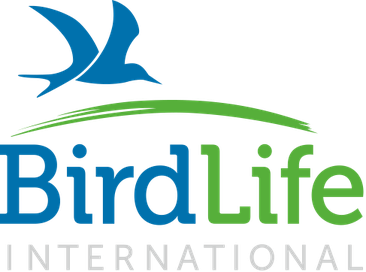
Tips and Tricks on how to be a good birdwatch
Tips and Tricks for birdwatching
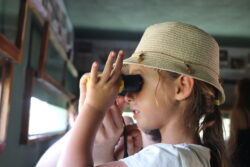
As spring progresses, our feathered friends are on the move: many incredible bird species are currently travelling from Africa to their breeding grounds in Europe. But this is a long, dangerous journey and so many of them will visit Malta to rest and feed, before continuing on. Other birds will stay here in Malta and start preparing to breed.
Here are a few tips and tricks:
1. Get some binoculars
Birds are shy and often try to keep their distance from humans. While not essential, having a pair of binoculars will allow you to get some good views of any visiting birds! You may even be able to see the small, yet beautiful Wood Warbler fluttering between bushes and trees in search of insect to eat!
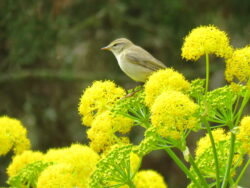
2. Get a bird guide
Whether it’s a book or an app, having a bird guide handy will allow you to identify any of the birds you see. This isn’t essential, and even just watching the birds is fun and relaxing, but being able to identify the birds that you see is very rewarding! You may use bird identification apps such as the Merlin Bird ID app by Cornell Lab of Ornithology and the Birds of Europe app. See if you can tell the Collared Flycatcher from the Pied Flycatcher and the Sardinian Warbler from the Blackcap.
3. Put out some food and water
In a hot country like Malta, birds are always looking for food and water! You can attract birds to your garden, courtyard, or maybe even balcony by putting out some food and water for your feathered friends! Putting out seeds and fruit will provide a tasty treat, (but avoid bread as this is actually unhealthy for birds). Spanish Sparrows will love the food you provide – these confident and confiding birds are often the first to visit your feeders!
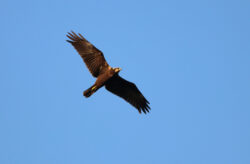
4. Look up!
By scanning the sky with your binoculars, you may be lucky enough to see a passing migrant! Whether it’s a bird of prey soaring high above, a flock of storks gliding past or a noisy, yet beautiful, colony of Bee-eaters, the possibilities are endless. Keep an eye out for the majestic Marsh Harrier flying high above you! These incredible birds are common migrants and are likely searching for rabbits to eat!
5. Avoid making loud noises or sudden movements
By staying quiet and moving carefully, you’re less likely to scare away your avian visitors, allowing you to enjoy watching them for longer! Look out for Willow Warblers in any bushes – these pretty little birds are on their way from Africa to Europe, but can’t resist stopping over for a snack! Especially a crunchy spider!
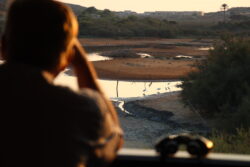
6. Dawn and dusk
Birdwatching in the morning and the late afternoon, as the sun begins to set, can be particularly fruitful. During these periods, birds are very active, either in their search for food, competing for mates, or looking for a place to spend the night. As the sun rises, you’re likely to hear the dawn chorus, as birds sing, trying to attract a mate. After long migrating journeys, many birds will also be active at this time, searching for breakfast! As the sun sets, birds will be looking for somewhere to spend the night. Keep an eye out for birds of prey soaring towards wooded areas and flocks of House Martins and Barn Swallows looking for a safe place to roost.
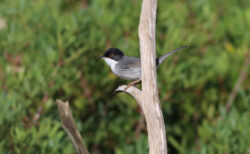
Bonus!
If you birdwatch in the evening, as the sun sets, keep an eye out for another charismatic flying creature. Bats can be found across Malta, and the rapid beating of their jagged wings and jerky flight allows you to easily identify them. Even in urban areas, bats can frequently be seen leaving their roosts and taking to the skies in search of insects to eat!
Despite many of us being confined to our homes, we can all still enjoy spring and Malta’s incredible birdlife – remember to keep a list of all of the incredible birds you see!
By Daniel Woodward, BirdLife Malta Education Assistant
Related Themes
HOW TO BE A GOOD BIRDWATCHER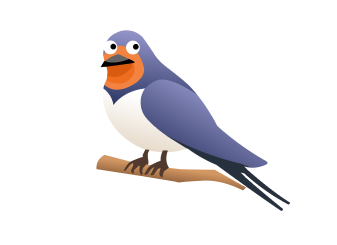
Website-et e partnerëve të tjerë
- Albania
- Armenia
- Azerbaijan
- Belarus
- Bosnia and Herzegovina
- Burkina Faso
- Croatia
- Cyprus
- Czech Republic
- España
- Georgia
- Ghana
- Ireland (English)
- Ireland (Gaelic)
- Ivory Coast
- Kazakhstan
- Kenya
- Latvija
- Lebanon
- Luxembourg English
- Luxemburg de
- Macedonia
- Malta (English)
- Mauritania
- Montenegro
- Morocco
- Nigeria
- Polska
- Romania
- Senegal
- Serbia
- Sierra Leone
- Slovakia
- South Africa (Affikaans)
- South Africa (English)
- Uzbekistan
- Zambia
- Zimbabwe